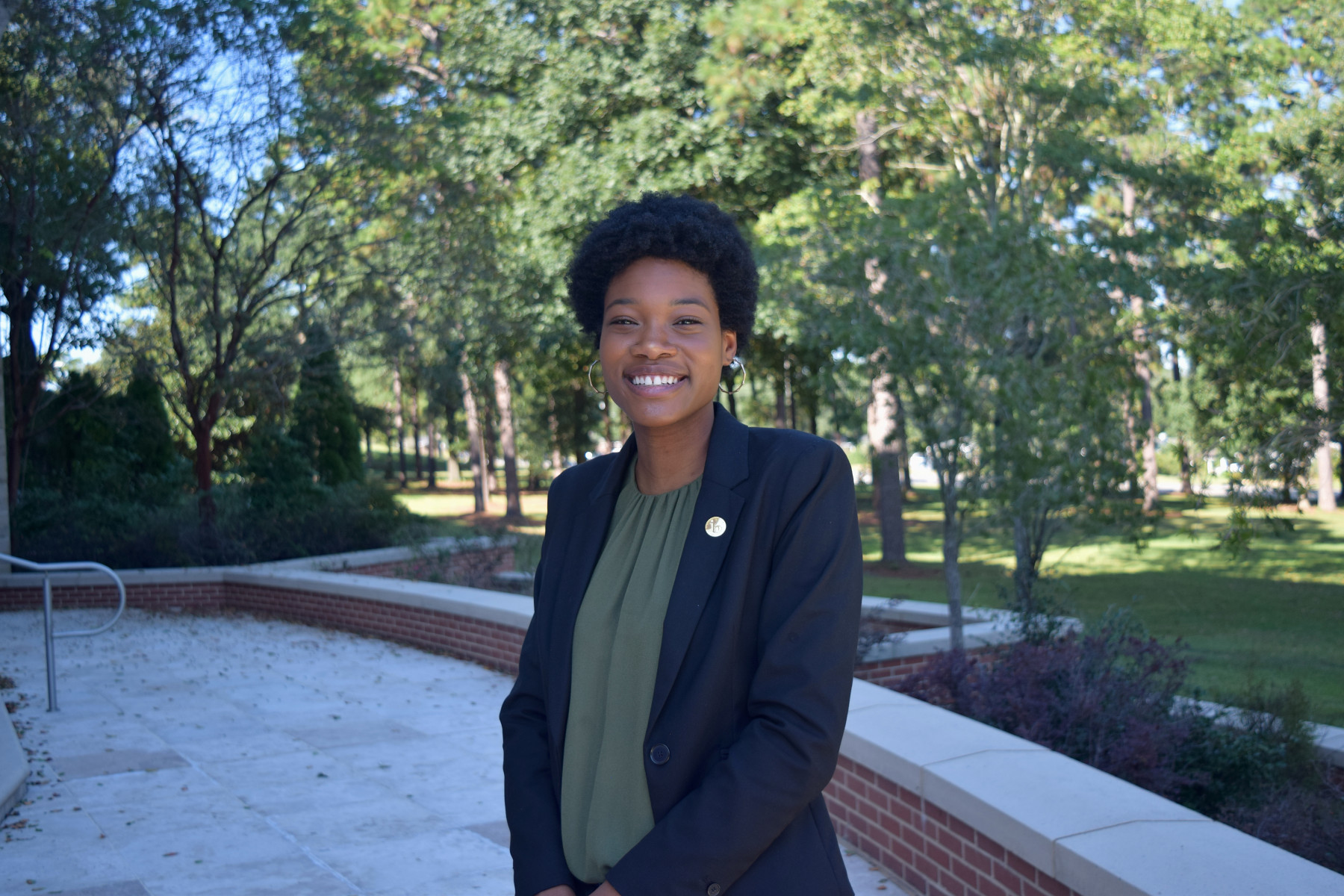
Britney Mack, a first-year doctoral student studying chemical engineering, has been selected for the National Science Foundation’s Graduate Research Fellowship Program, the nation’s oldest fellowship program. This prestigious fellowship was awarded to approximately 2,000 of 12,000 applicants this year and provides three years of support to graduate students in STEM fields.
Mack was selected for her project focused on “evolving remediation of organic contaminants via catalyzed ozonation water treatment.” Mack shared that she has been investigating a “wastewater treatment strategy to remediate the accumulation of per- and polyfluoroalkyl substances (PFAS),” such as perfluorooctanoic acid (PFOA) and perfluorooctanesulfonic acid (PFOS), in public water supplies since beginning the doctorate program at UA.
“It’s such an honor to be recognized for the preparation and work that has led up to this point in my academic career,” Mack said. “As someone who has lived near the water her whole life and experienced the British Petroleum Deepwater Horizon oil spill, I have seen the devastating economic, health and environmental impacts of contaminants in water firsthand. This means that I have an opportunity to pursue my passion of building a sustainable future for future generations and [giving] back to my local community.”
Mack’s current interests include catalysis and reactions design. She believes that the NSF GRFP will not only guide her intellectually and build her curiosity but will also allow her to explore catalytic applications in an effort to build a more sustainable future.
“A major challenge in this field of study is that the decomposition pathway of PFOA is widely unknown. With the support from the NSF GRFP, I will play a critical role in improving our understanding of PFOA degradation pathways and design an innovative wastewater treatment technology,” Mack said. “I plan to do this by synthesizing metal-oxide encapsulated zeolites, a microporous material capable of enhancing the degradation process further. Studying this system would allow for informed studies of remediation techniques for other types of PFAS and similar organic contaminants.”
Mack’s research endeavors do not stop here, as she will intern at Underwriters Laboratories’ Materials Discovery Research Institute as a National Graduate Education for Minorities (GEM) Fellow this summer. There, she will be able to continue the study of catalysis and materials design.
To read more about the NSF Graduate Research Fellowship Program, visit https://www.nsfgrfp.org/about/about-grfp/.